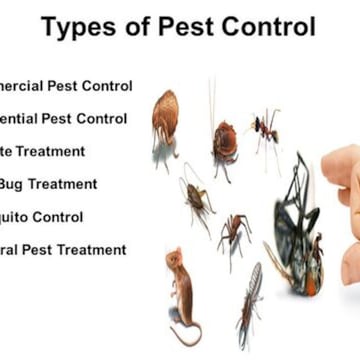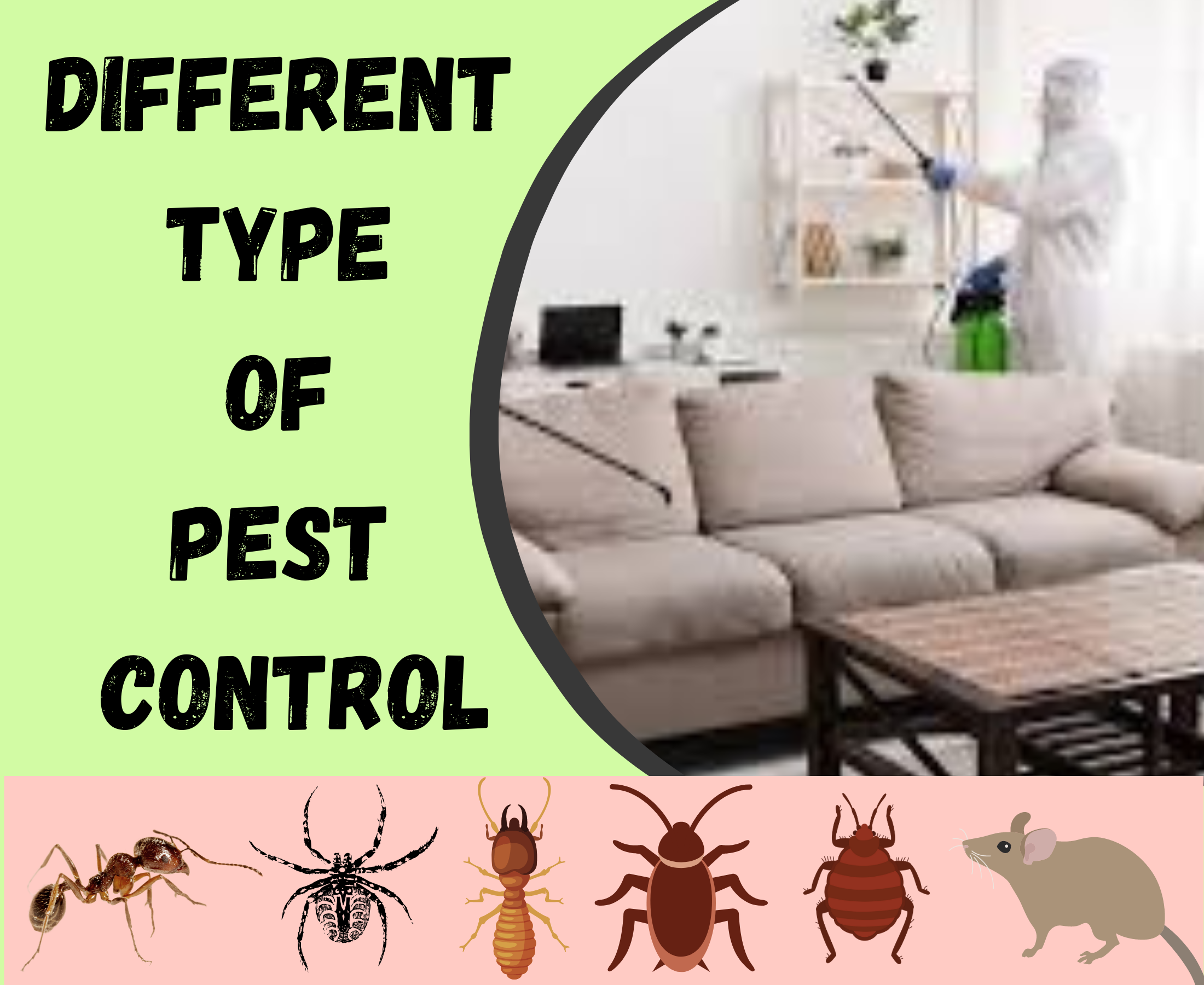What Does Pest Control Mean?
What Does Pest Control Mean?
Blog Article
The Basic Principles Of Pest Control
Table of ContentsGetting My Pest Control To WorkHow Pest Control can Save You Time, Stress, and Money.A Biased View of Pest Control3 Easy Facts About Pest Control DescribedSome Known Factual Statements About Pest Control Unknown Facts About Pest Control
Our findings show that the initial evaluation will certainly cost anywhere from $160-$300 typically. Ideally, home owners should schedule analyses for their homes at the very least yearly. From there, many exterminators established costs based on the client's certain needs. This normally sets you back anywhere between $400-$1000 for the entire year's insurance coverage, with regular monthly or bi-monthly brows through currently rolled into the final expense.Depending on the issue, a task that requires a single go to generally costs $300 to $550. These are the most convenient rates to describe in your insect control costs listing.
Parasites that generally needs recurring sees consist of: Roaches. Crawlers. Termites. Ticks. Rats. Our findings reveal that an initial check out is regarding $180 and is the very first of a continuous contract. The first go to is where you do the investigating that will help you figure out an option. Throughout this very first go to, you need to: Analyze the problem. Pest Control.
12-month agreement. Generally, the frequency of routine gos to is: Each month: $40 45. Every two months (semi-monthly): $50 60. Every three months (quarterly): $100 300. Bug control is a chemically-intensive organization. Nevertheless, chemicals are the crucial products that pest control men use to finish a task. Common chemicals consist of: Boric acid.
The Best Strategy To Use For Pest Control
Necessary materials and materials you'll utilize consist of: Respirator. Your tools need to be consisted of as part of your overhead expenses. If you have workers, then labor costs are going to be the biggest costs for your company.
Limitations of Chemical Administration Have the ability to evaluate pest issues, establish if administration is essential, and make appropriate recommendations using IPM techniques. Be acquainted with various approaches of bug administration - their benefits and limitations. Recognize the worth of beneficial bugs. It is not possibleor also desirableto rid gardens of all pests.
This phase reviews (IPM), a strategy that makes use of knowledge concerning bugs and their, techniques, nonchemical methods, and pesticides to manage parasite problems. Added info about IPM for details plants is included in chapters that concentrate on those plants. Nonchemical insect control steps are worried in phase 17, "Organic Gardening." Managing birds and creatures is covered in phase 20, "Wildlife." Managing in the backyard and yard is covered in chapter 6, "Weeds." Bugs in a garden or landscape may consist of pests and mites, weeds,, animals, and birds.
Pest Control Fundamentals Explained
Lots of people rush to pull, hoe, or spray every weed they see. Insects and weeds, nonetheless, contribute in the. After growing a yard or establishing a lawn, the all-natural process of plant succession begins to improve and nonnative plants. A weed growing in a yard stands for the initial stage in a series of events that, if enabled to continue, could at some point lead to a woodland.
What we call "bugs" become part of a natural system at the workplace. An environment has no insects. Just people consider particular varieties insects when they happen where they are not wanted. We will be extra successful in taking care of unwanted types when we recognize that these organisms follow predictable patterns that we can utilize to our benefit.
Parasites vulnerable to a pesticide were swiftly eliminated, leaving resistant ones to reproduce and multiply. It became clear that pesticides alone would certainly not fix all insect issues.
An IPM plan enables some degree of insects in the environment. Insects are a lot less likely to endure a program that uses several techniques of reducing their populaces. Integrated pest monitoring was initial recommended by entomologists due to the fact that bugs were the initial group of insects to show difficult to handle with chemicals alone.
The Basic Principles Of Pest Control

Monitoring rather than eradication of parasites is the objective. An IPM strategy begins with a careful evaluation of each insect invasion.
Clover expanding in a yard might be seen as an undesirable weed, however as a vegetable it is manufacturing nitrogen for the soil and the flowers are giving nectar to honey bees and various other. Resistance for some weeds may become part of an IPM plan. may be eating the fallen leaves of a plant, however when they are recognized as find out this here the larvae of Eastern tiger swallowtail butterflies, their damage may be tolerated so we can enjoy the attractive butterfly.
Matt Bertone Avoidance is the initial device in bug monitoring because it is the most efficient, least expensive, a lot of eco pleasant remedy. Choosing a healthy plant that prospers in the wanted area with the readily available light, planting it carefully, and guaranteeing that it has sufficient water and nutrients protects against stress and anxiety and decreases bug troubles.
How Pest Control can Save You Time, Stress, and Money.
The 2nd most crucial tool in bug monitoring is early intervention. Existing and observant in the yard guarantees very early discovery. Reacting to issues swiftly, before they have time to multiply, requires a less significant treatment. The 3rd crucial tool is recordkeeping; tracking what happens in the garden allows a garden enthusiast to identify patterns and make educated decisions.
Numerous secure, useful, nonchemical methods of plant protection and insect management may decrease or remove the requirement to spray. Other techniques are most useful when made use of with pesticides. To execute management techniques correctly and to reduce losses, gardeners must understand the kinds of insects that attack plants and comprehend pest biology.
Bug administration techniques fall right into four groups: social, mechanical, organic, and chemical. Maintaining plants healthy and balanced and preventing plant stress and anxiety helps plants to much better stand up to and repair the damages triggered by an insect or mite pest. Some proof indicates that healthy and balanced plants stand up to infestation by pests better than plants with low vitality.
Carrying out a soil test and applying just the recommended amount of fertilizer and lime optimizes the benefit to the plant while reducing troubles related to extreme use fertilizer. Covering the dirt with a number of inches of compost safeguards the plant in several methods: decreasing dirt water loss to dissipation, minimizing weed competitors, offering nutrients, and creating why not find out more an ideal environment for earthworms and bacteria that maintain the soil loosened for roots and break down organic material to launch nutrients.
The 9-Minute Rule for Pest Control

If tilling is regarded necessary, take into consideration doing it in the loss when the life process of numerous bugs brings them near the surface. At the surface area, insects become exposed to the weather condition in addition to birds and other natural adversaries. Autumn tilling can additionally damage insects in plant residues. Use healthsome and insect-free licensed seeds and plants if available.
Report this page